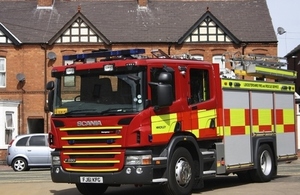New government guidelines will end the practice of boomerang bosses
New government guidelines will stop senior fire officers from being re-employed in the same or similar roles after they have retired.

New government guidelines will put a stop to ‘boomerang bosses’ in the fire service.
The current practice can see senior officers retire from their job and draw on pension benefits – before being re-employed almost immediately in the same or a similar post on potentially more lucrative terms.
A long-serving chief fire officer on a typical salary of around £140,000 can potentially access a lump sum from their pension pot of over £400,000 and then avoid employee pension contributions of more than £20,000 a year after being re-employed in the same role.
The government has previously urged fire authorities to take action to stamp out the practice, which means taxpayers have to make up the shortfall in pensions through direct contributions from the exchequer.
But amid concerns it is ongoing in some authorities, Fire Minister Brandon Lewis is to redraw the fire and rescue national framework to ban it, unless fire authorities can demonstrate an exceptional public safety need.
Brandon Lewis, Minister for Policing and the Fire Service, said:
It’s completely unacceptable for fire services to act in this way. It erodes public confidence, undermines the respect of firefighters and staff in their leadership, and creates the perception that there is one rule for file and rank firefighters and another for those at the top.
This government is reforming the fire service to make it more accountable, efficient and effective in performing its vital duties on behalf of the public.
So I’m going to rewrite fire service rules to stop authorities employing boomerang bosses – and conduct a wider review of the guidelines to help drive the government’s reform programme.
The new rules will also bar an officer who returns to work in such an exceptional circumstance from drawing their pension alongside their salary.
The Home Office will now conduct a 6 week consultation and will ask for the views of fire and rescue authorities, trade unions and other interested parties on the best way to deliver the required reforms.
This comes ahead of a full review of the national framework later this year, which will reflect the wider fire reform agenda.